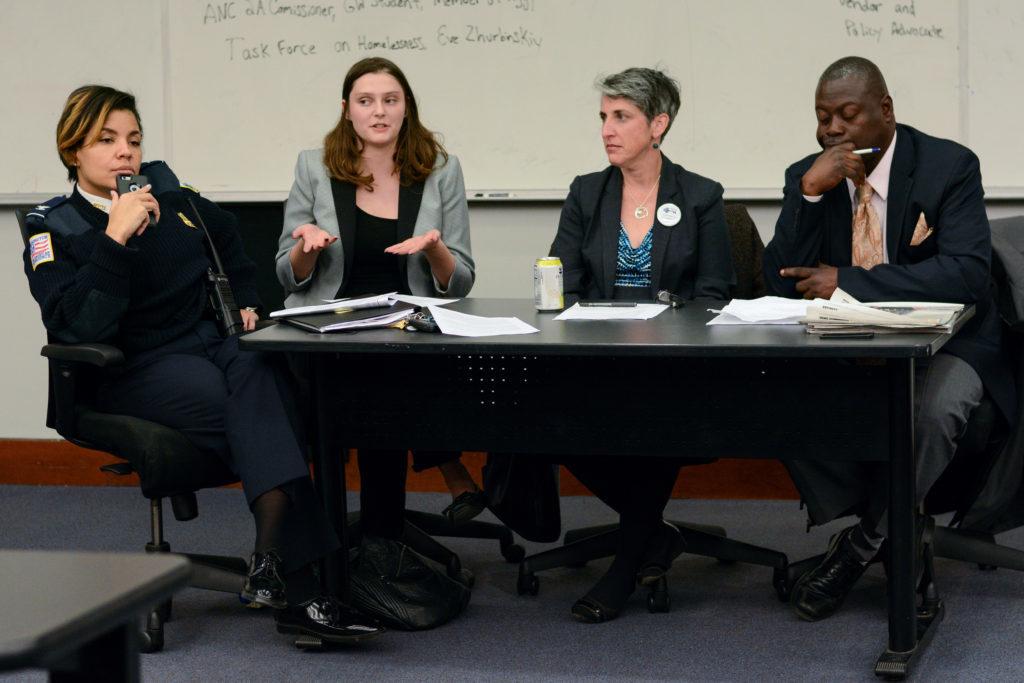A group of city officials talked about homelessness in D.C. and the role students could play to combat the issue at a panel discussion in the Media and Public Affairs building Tuesday.
The event, organized by the GW Roosevelt Institute, included Cmrd. Morgan Kane of the Metropolitan Police Department, At-large D.C. Council member Elissa Silverman and Eve Zhurbinskiy, a senior and a Foggy Bottom and West End Advisory Neighborhood commissioner.
Sophomore Dan Ohiri, the Roosevelt Institute’s local advocacy chair, moderated the discussion.
Here are three takeaways from the event:
1. E Street Encampment
Zhurbinskiy said the recent forced evacuations of the E Street homeless encampment are ineffective because the camps are quickly reconstructed. She said that while removals are necessary to maintain public safety, they are not a solution to end homelessness.
“When you push people out, they just move on to the next neighborhood,” Zhurbinskiy said. “You haven’t solved anything.”
She said that removing homeless camps does prevent public health hazards, like excessive waste, that could endanger people living in the encampments.
Zhurbinskiy added that Foggy Bottom has minimal public bathroom access, which leaves homeless encampments with minimal sanitation. She said citizens should support legislation incentizing businesses to open their bathrooms to the public.
2. Stereotyping the homeless population
Kane said she disagreed with the common perception that homelessness is inherently connected to crime. Criminals exist in every race and age group, she added.
“To paint that picture of a homeless population when we’re talking about some folks that are just down on their luck, I disagree with that,” she said.
James Davis, a vendor and policy advocate for Street Sense Media, a news organization that raises awareness about issues surrounding homelessness, said often people have a negative impression of people experiencing homelessness and that many simply regard them as “eyesores.”
“If you haven’t been there, you don’t know what their situation is, or what exactly it is that they need,” Davis said. “For the most part in Washington, D.C., there is no criminalization of homelessness.”
3. Student involvement
Zhurbinskiy said students can volunteer with student organizations or on committees, like the Foggy Bottom Association Homelessness Task Force, to help address homelessness.
Kane said community policing and encouraging interaction between police departments and citizens are important steps to prevent crime and support community needs.
“We want to hear from you,” Kane said. “We want to talk to you. We want to know what you’re seeing, what you’re thinking, what your needs are.”
Silverman said students should work with other D.C. universities to become more politically active at a municipal level. She said students should vote in local elections where they can usually have the biggest impact in creating change.
“If you register to vote here, then you can set a role in what priorities the city sets,” Silverman said. “If you guys all registered to vote, and you worked in coalition with similar groups at Georgetown and Trinity, you can set the agenda.”





